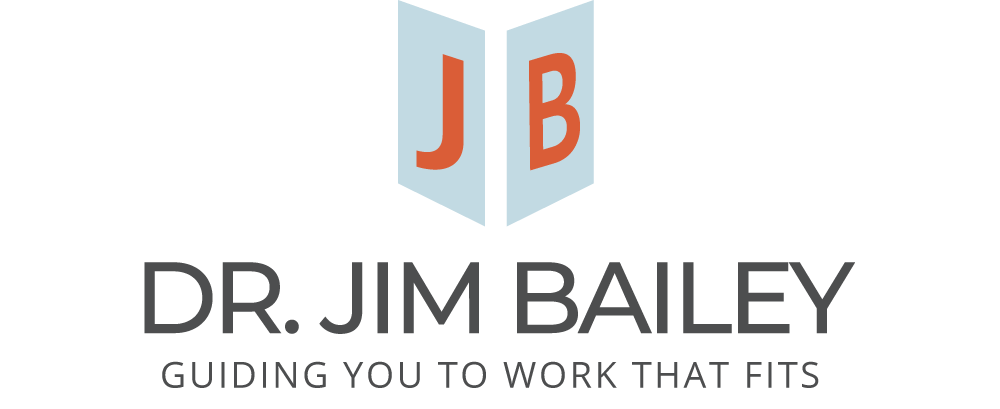Are You Evaluating Yourself Accurately?
I’m sometimes asked, “what’s the thing that brings clients to your website or business?” My quick answer is, “Pain”. Then I’ll go on to explain, “Most of us have a deep desire to be competent and capable of solving our own life problems. It’s painful to embrace the idea that we can’t fix ourselves or that we’re not as capable as we would like to be.”
This is especially true in the age of “Insta” communication and instant gratification. Human beings weren’t designed to handle mass exposure to the polished highlights of people beyond our immediate circles. Yet, our lives are constantly inundated with information about what we should do (or have) to make us better, more competent, attractive or complete.
It's common for prospective clients to share that they have feelings of inadequacy, or even shame, because they haven’t yet attained the career clarity or “success” they see friends and others experiencing. Executives and managers declare their frustration that the newest business principles and ideas from podcasts and “how-to” books haven’t worked for them. And in everyday life I hear disillusioned people share that they, their lives, or their families aren’t what they’d expected or hoped.
How do we evaluate (dare I say, “judge”?) our lives accurately? What are solid criteria to determine if you’re on-track to the life you want?
I think the First Key is to realize that you, and the life you live, are supposed to be unique. That sounds simple, even stupid-simple, but ask yourself how often you compare yourself or your life to someone or someone else’s life. For most of us the answer is “pretty often”.
Comparing ourselves and our lives to other’s starts young. I’ve heard dozens of clients declare that they wish they could “live up to” the lives of their parents, friends, or life heroes. Too many of them speak of themselves as failures because they haven’t attained the clarity or success that they see in the lives of the people they admire.
However, you and I have been uniquely designed and given life experiences that differentiate us from everyone who ever lived before or after us, including our parents, friends, and life heroes. Your life isn’t supposed to be a virtual clone of someone else or their life. Your “wiring” and your unique life experiences (positive and negative) give you one-of-a-kind potential to make a positive impact on the world.
The Second Key for evaluating your life accurately is to gain a clear understanding of the higher ideals that you want to characterize your life, then living by those ideals. The adage that “The man (or woman) who aims at nothing is sure to hit it” is full of powerful truth. When we don’t clearly understand the impact we want to have on the people and world around us, then we’re apt to flit from one transient (and often self-serving) goal to another.
If you know exactly what you want your life to stand for, then you can reverse-engineer it to ensure you achieve those things. Of course, knowing what you want your life to stand for first requires a sober appraisal of your own priorities. What is most important and worthwhile to YOU? Once you’ve established your own life priorities, then you can ask what traits and actions you need to apply to each day and season of your life. It’s heeding Steven Covey’s wise advice that you, “Begin with the end in mind”1.
The Third Key is to apply the right metric or standard for self-evaluation. Most students and employees know the frustration of being graded or evaluated based on someone else’s opinion rather than objective standards. In a world of “relative truth” where we’re told each of us can determine our own criteria for what’s right, we still need objective standards for evaluating ourselves and our lives, rather than the fleeting whims, demands, and moods we experience each day. Likewise, evaluating yourself accurately requires you to have objective standards that are accurate measures of your life priorities, so you can know whether you are, or aren’t, hitting the targets you’ve set for yourself.
For example, my standard for evaluating my work cannot be whether my clients like me or think I’m doing a good job but rather whether I am doing the things needed to effectively guide my clients to work and life strategies that fit them and their goals. This requires me to evaluate my efforts humbly and objectively, with an understanding that I can (and should) always be striving to get better at what I do. If I don’t meet my own standards, then I can always learn ways to get better at meeting them.
These same approaches can be applied to our relationships, our health, our spiritual life, just about any facet of our lives. Asking, “What are the standards for living the great life to which I aspire?”, then living to meet those standards gives us a consistent framework for attaining those things. No one lives a great life by accident, great lives happen intentionally.
Would you like help identifying the unique gifting and experiences, higher ideals, and standards that will guide you toward an intentional and impactful life? Then click Contact Dr. Jim above. It's free and I'm always glad to talk.
1 The Seven Habits of Highly Effective People by Steven R. Covey

